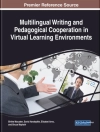In a growing revisionist tradition, comparative educational scholars challenge conventional assumptions about quality education as a singular undertaking dominated by standardised assessments and globalisation influences. The contributors to this volume illustrate the complexities and global dimensions of educational quality that emerged in their research. Several chapters critique educational reforms employing assessments aligned to global standards and large scale assessments, revealing how considerations of contextual factors, internal needs and local traditions are essential for developing a quality curriculum or for overhauling a national education system. Most chapters interrogate the uses and misuses of standardised assessment results. The contributors reveal the importance of asking critical questions about quality education: how to access it and for what purposes; what contextual and cultural factors are important; what implementation issues and local-level realities must be considered for true understanding of standardized assessment results; what content, skills and values are necessary and desirable ingredients; what roles teachers and administrators play; and what benefits accrue in terms of outcomes for employment and labor market needs or for achieving autonomy and stakeholder participation. Critiques of narrow interpretations of standardised assessment data contrast with research-based evidence that participation in large scale assessments such as PISA, TIMSS and PIRLS can indeed be beneficial to identify needed reform refinements and implementation shortcomings. Specific country cases include Brazil, Canada, the United States, Spain, Portugal, Ukraine, Kyrgyzstan, and the Philippines. Other chapters provide insights on quality education issues worldwide. The volume offers readers a panorama of views on the diversity of paths to quality education.
สารบัญ
Acknowledgments; Preface; 1. Qualities of Education: A Diversity of Perspectives and Cases, Worldwide; 2. Developing Clearer Snapshots of Educational Quality Through the Lens of International Large-Scale Assessments: A Meta-interpretation of PISA, TIMSS, PIRLS, and ICCS; 3. Education Quality in Kyrgyzstan and the Programme for International Student Assessment (PISA); 4. Large – Scale Assessments and Quality in Basic Education: The Brazilian erspective; 5. Promoting Quality through Assessment?: Standardised Testing and Indigenous Schools in Canada and the United States; 6. Increasing the Quality and Attractiveness of Vocational and Technical Secondary Education and Youth Employment Rate in Turkey: The Project for Strengthening Vocational Education and Training (SVET); 7. For a Systemic Approach to Quality in Education: The Role of Early Childhood Educators and Teachers, and Views of Political Decision Makers in Portugal; 8. Axiological Basis for a Curriculum Design in Educational Institutions of Quality: A View From Spain.; 9. Situating Early Childhood Care and Development Quality: Local Filipino Practices of Bayanihan and Dagyaw; 10. ‘Adapting’ Education to Student Needs: Unchallenging Education in Ukrainian Orphanages; 11. The Global Spread of Shadow Education: Supporting or Undermining Qualities of Education?; Authors’ Biographical Statements.












